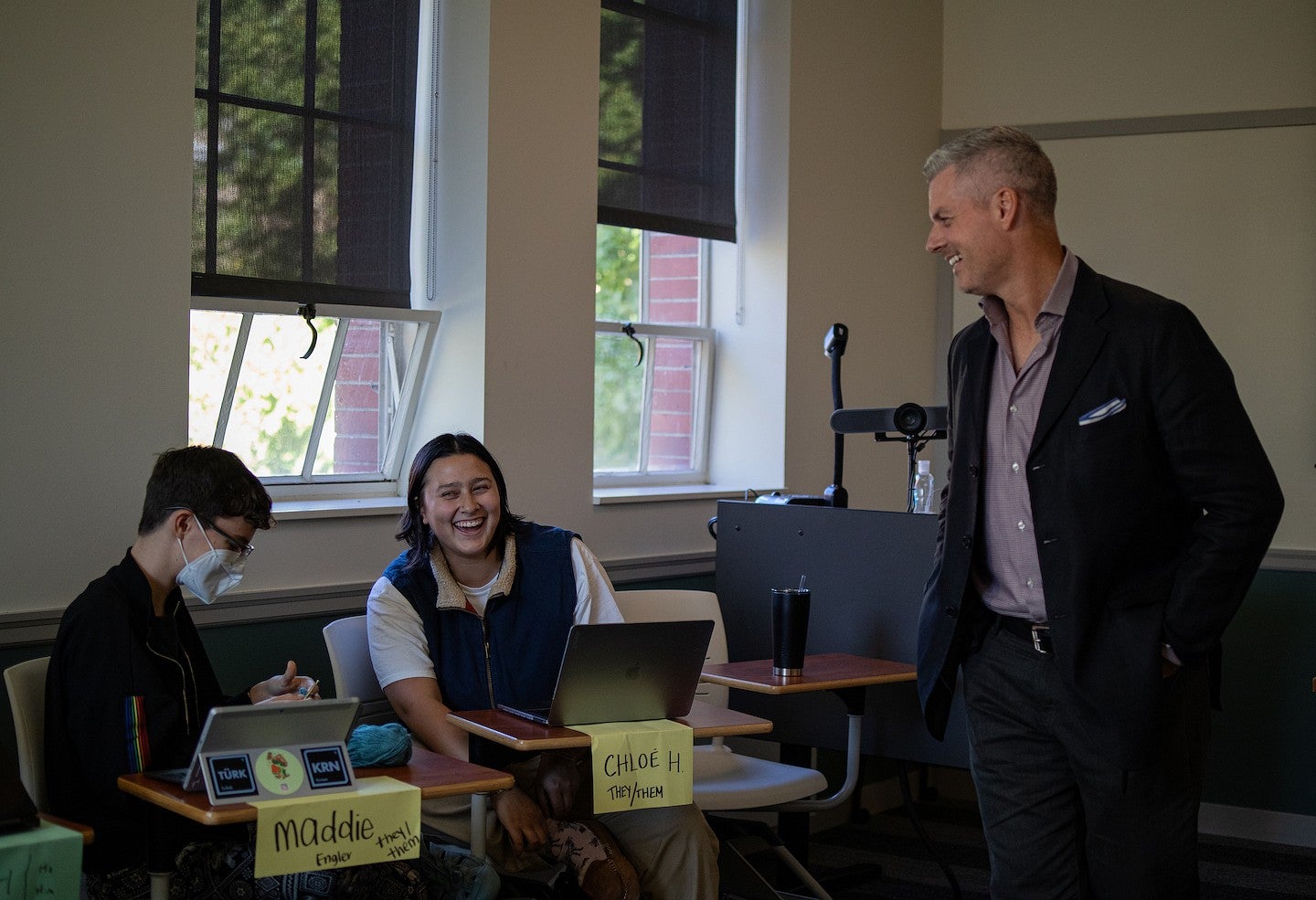
From small-town beginnings to Mexico and back
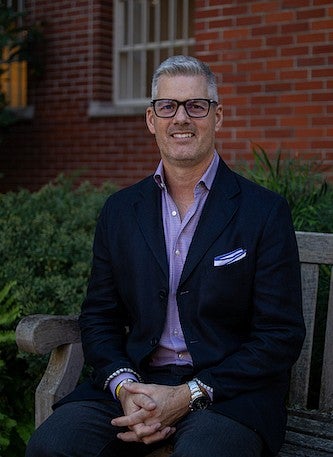
Favorite subjects: Literature and the humanities
Favorite snack: peanuts, cheddar cheese, and something sweet
Advice to current students: Be as open as possible to the perspectives of people around you.
What’s been motivating you recently: A drive to improve.
As a cultural anthropologist, one of Tobin Hansen’s goals as an instructor is to support his students. This fall, he is teaching an honors course on U.S.-Mexico borderlands, but his career in anthropology has always been about caring for others.
On a recent afternoon in his class, Hansen spent the first 10 minutes checking in with his students. How settled into a routine are they feeling? How rested is everyone?
When considering the purpose of his class, Hansen sees more to it than just having students learn content. These first-year CHC students have just moved into their dorms and are potentially away from their family for the first time.
Hansen understands the feeling of leaving a community to go to a new place. His adult life has been split between Oregon and Mexico. As an anthropologist, he has spent years conducting research on the tensions connected to the U.S.-Mexico border, working on issues of deportation, drugs, families, and family displacement.
He joined the Clark Honors College recently as an instructor in the core faculty. He plans to encourage his students to examine tough issues, but not forget the human side of things.
“It’s absolutely, fundamentally about students’ personal relationships to content and to the community around them,” Hansen says. “And so, the learning that we’re doing is really important for cultivating ourselves as people.”
Going beyond borders
Hansen was raised in Gates, Oregon, a small town east of Salem that sits at the foothills of the Cascade Mountains. He loved reading and dreamed of being a Major League Baseball player for the Los Angeles Dodgers.
Gates and the surrounding towns had large Spanish-speaking populations, with communities specifically from Jalisco. “It gave me a desire to connect with people in those two languages,” Hansen says, referring to Spanish and English. In middle school, he began learning Spanish informally just by spending more time with Spanish-speakers. In high school, he took classes to learn how to write and express himself more clearly.
His summers throughout high school were spent working at a lumber mill and bucking hay, physically intense work that was important to industry in the area. Even with the close relationships he built in his hometown, he wanted to leave. Exploring other parts of the world had always been his dream.
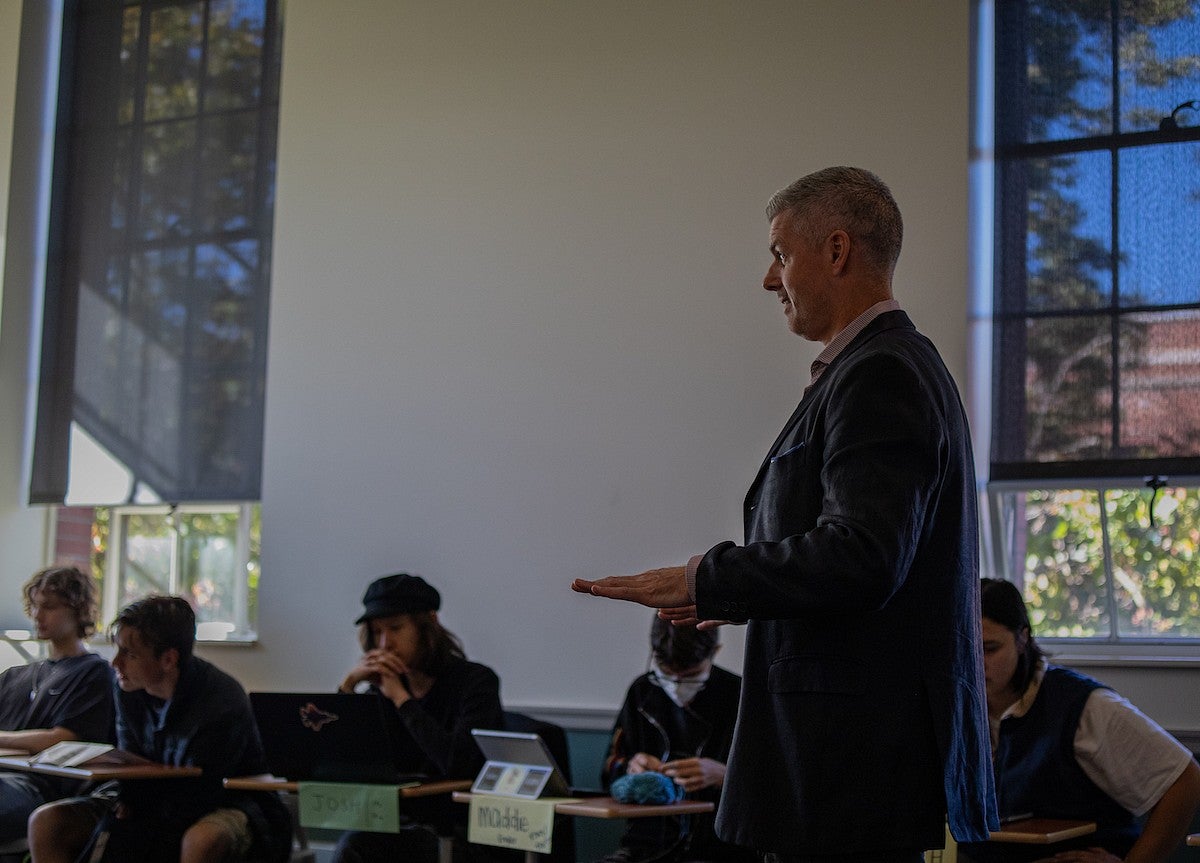
He was accepted to Corban University, a small college near Salem. Before he started, he traveled to Sinaloa, Mexico with some friends. They went to the beaches and walked around, and he practiced his Spanish. In the city of Mazatlán, he remembers eating burritos and enjoying the music and culture.
The following two summers, he went back to Mexico, both to vacation and volunteer. One of the summers was spent serving as a dorm supervisor at a local orphanage for street kids. He took care of kids who otherwise didn’t have homes and people looking out for them. “After that, it was just looking for opportunities to engage,” Hansen recalls about his young-adult life visiting Mexico.
At Corban, he majored in accounting and finance. They were worthwhile subjects but didn’t stir any passion in him. He decided to reconnect with the humanities and literature studies that he found meaningful in high school and added a degree in English. Although he didn’t end up making it to the major leagues, he played baseball for Corban for four years.
During his time as an undergrad, Hansen took Spanish classes at Willamette University, a neighboring school of Corban. He continued with learning how to communicate, read, and learn about cultural aspects of the language. After graduating, he taught Spanish at his alma mater and at Oregon State University. At the same time, he earned a master’s degree in Spanish and Latin American Studies there.
He finished at OSU and moved to Guadalajara, Mexico. He found work as a project administrator at KPMG, a large consulting firm with a location in the city. His job moved at a much more laid-back pace than graduate school, where he worked full-time on top of classes. He worked from about 8:30 a.m. to 6 p.m. but left his work at the office with his evenings and weekends free.
While living in Guadalajara, a cosmopolitan city with a population of nearly 1.5 million people, he realized that growing up in a small Oregon town had more to give him than he originally thought. He gained perspective from the contrast between these two places. He describes his hometown as “a place that before, was the universe, but now it’s just another place.” His travels and experiences in different places let him appreciate where he has been and see the meaning that his hometown holds without it being his whole world.
A deepening relationship with a culture
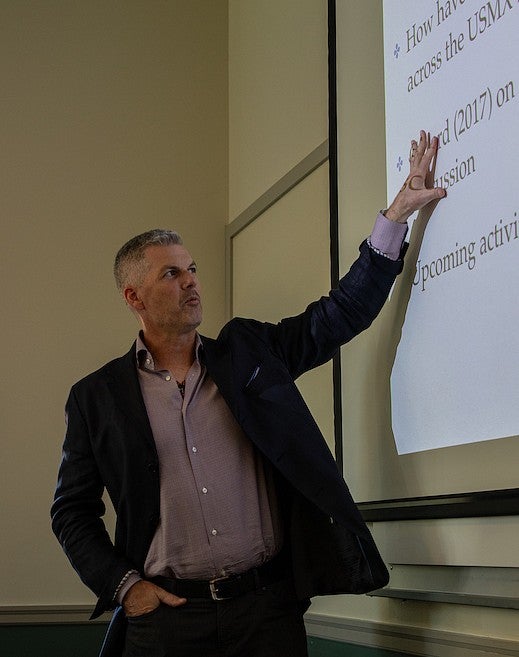
He moved back to Oregon after four and a half years in Mexico and taught Spanish again at OSU. But he didn’t stop visiting Mexico. In 2011, he reached out to Howard Campbell, a cultural anthropologist from the University of Texas, El Paso. Hansen was interested in Campbell’s work and wanted to get involved in research.
So, he sent an email to Campbell to express his interest in his work and research regarding drug trafficking. Hansen flew to Juárez then crossed the U.S. Mexico border into El Paso to meet Campbell. The two "instantly bonded,” according to Campbell, over their love of Spanish and desire to do work that matters.
“I thought maybe I would photocopy things, be an intern, or something like that,” Hansen recalls. Instead, Campbell had him travel to Mexico to interview people who had been involved in illicit drug business but left it. He completed several interviews that summer, and he and Campbell had their work published in the International Journal of Drug Policy.
In the summer of 2013, Hansen was in Nogales, Mexico doing follow-up interviews. That’s when he met and became close friends with two men who lived there. Nogales is a border town 72 miles south of Tucson, Arizona. Hansen met the men while walking in a part of town not frequented by tourists. They spoke for hours one sweltering day, and he learned that both men were Mexican born but had lived in the United States since childhood.
Both had served time in U.S. prisons for gang-related crimes and were deported to Mexico as adults. After sharing their stories, the men asked and encouraged Hansen to use them in his research. Their accounts – and more stories like theirs – became part of his doctoral dissertation. The men felt that their story needed to be told and saw that Hansen had the power to share it.
A book that Hansen co-edited with María Engracia Robles titled "Voices of the Border: Testimonios of Migration, Deportation, and Asylum," continues the research and conversation that Hansen started with the men he met in 2013.
“Mexico received me, welcomed me,” Hansen says now. “And for me what is meaningful is doing research that is related to migrant justice issues. I just happen to like going places and being with people and having people show me, in their own spot, what's going on.”
Campbell and Hansen worked closely together as Hansen learned first-hand what anthropological research can look like. The two of them completed interviews and worked side-by-side on multiple projects. Campbell says that his daughters still ask about Hansen today, asking when he will come back to visit. He says Hansen had a special mix of characteristics that made him easy to work with when they worked together.
“There’s a certain magic to Tobin’s personality that helped him become an anthropologist,” Campbell says, citing his colleague’s charisma and work ethic as qualities crucial for anthropologists to have when working with people and communities.
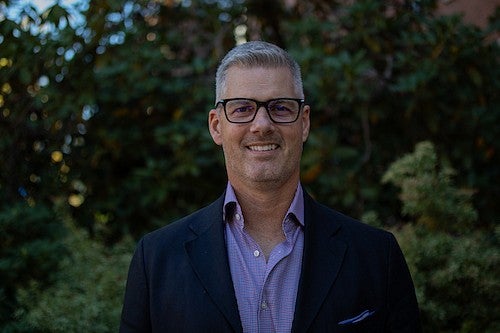
Cultivating students as people
Hansen received his PhD in anthropology from the University of Oregon. Since then, he’s felt like he’s had a lot more ownership over his work, and it taught him more anthropological practices and theory that he was able to integrate into his deportation research. He cites UO Professor Lynn Stephen in the departments of Latin American Studies and Anthropology at UO as the mentor that helped him develop as a scholar.
Today, he encourages his students to get involved in social justice causes. His class, “U.S.-Mexico Borderlands,” is a discussion-based course where students bring their opinions, questions, and thoughts into class sessions.
When he isn’t on campus or doing academic work, Hansen spends his time with his partner and three-and-a-half-year-old. They enjoy going on bike rides, walks, and skipping rocks at the lake. He still loves reading as an adult and listens to podcasts to collect knowledge even when he can’t pick up a book.
“It’s really about making meaning out of the world and how our lives are situated within it, and making meaning out of our own lives and being the people that we want to be,” Hansen says. “We’re here to support one another. And my job is to support student growth. And I really like doing it.”
